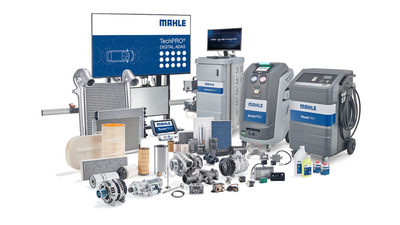MAHLE Push Research On Future Technologies Like Hydrogen
 |
- Group maintains R&D investments at high level despite crisis
- Expansion of global competence centers will further strengthen research and development
- R&D activities to focus on solutions for battery systems and hydrogen applications
- Installation of new hydrogen testing infrastructure has begun in Stuttgart
- MAHLE CEO Stratmann calls for an approach open to all technologies in order to achieve the climate targets
MAHLE will focus even more strongly on its strategic future priorities. The Stuttgart-based technology group is therefore maintaining its investments in research and development at a high level despite the crisis. MAHLE will further strengthen its research and development activities by expanding its global competence centers, including those in Germany and China. The key development areas are battery systems and hydrogen applications—for which MAHLE already supplies numerous innovations. MAHLE has recently begun to install hydrogen testing infrastructure at its headquarters in Stuttgart. MAHLE CEO Jörg Stratmann has weighed in to the current debate on how to achieve the climate targets, advocating an approach that is open to all technologies: “We must tackle the climate targets using effective technologies and all the solutions currently available to us.”
“Viewed from an international perspective, there will not be one single powertrain of the future. That’s why MAHLE is continuing to follow its Dual Strategy: electrification, development of the fuel cell, and the use of hydrogen and alternative fuels in an intelligently electrified combustion engine,” said Dr. Jörg Stratmann, Chairman of the MAHLE Management Board and CEO at a press conference in Stuttgart on Friday. “At the moment, the change in powertrain technologies is driven primarily by political objectives. The current one-dimensional debate focused on a single drive is not productive. We want a dialog that has a basis in technology.”
As part of the expansion of its global R&D infrastructure, the Group has recently set up a new competence center for mechatronics in Kornwestheim, near Stuttgart. In the future, all international activities in this field will be coordinated from this location. In Fellbach, also near Stuttgart, a new, ultramodern test bench for electric drives has been commissioned, which is one of very few of its kind in Germany. An e-mobility development center in Suzhou/China is scheduled for completion in December. MAHLE will pool its expertise in mechatronics, thermal management, and fluid management at the site and work on solutions specifically for the Chinese market.
MAHLE sees the use of hydrogen as key when it comes to shaping carbon-neutral mobility—both in fuel cell technology and in the combustion engine. Through policy initiatives and a highly diverse range of collaboration agreements in the industrial sector, the group is working hard to accelerate the establishment of these technologies. At MAHLE, research and development activities relating to hydrogen are pooled in a project house.
At the press conference, MAHLE’s Head of Corporate Research and Advanced Engineering, Dr. Martin Berger, presented a current project involving a type IV hydrogen tank. The design consists of a liner made of plastic and an outer casing made of carbon fiber. MAHLE is working on the development of a new production process for this tank that will increase its hydrogen storage density and make it cheaper at the same time. The group is also installing hydrogen infrastructure to test fuel cells and hydrogen-powered combustion engines.
To accelerate the market penetration of battery electric mobility, MAHLE is working intently on the subject of battery cooling. To allow for fast charging, the temperature in the battery cell needs to be evenly distributed and must not rise too high. On this point, Martin Berger gave an insight into another of MAHLE’s new developments—by harnessing the concept of immersion cooling, charging times can be reduced and batteries made smaller. He commented that: “Immersion cooling paves the way for a whole new generation of battery systems. With this technology, electric vehicles will be cheaper, lighter, and more resource-efficient.”
About MAHLE
MAHLE is a leading international development partner and supplier to the automotive industry. The technology group is committed to playing an active role in transforming the mobility of the future by further optimizing the combustion engine, driving forward the use of alternative fuels, and laying the foundation for the worldwide introduction of e-mobility and other alternative drives, such as fuel cells. The group’s product portfolio addresses all the crucial aspects of the powertrain and air conditioning technology.
In 2019, MAHLE generated sales of approximately EUR 12.0 billion and is represented in over 30 countries with more than 77,000 employees in 160 production locations and 16 major research and development centers.
(Last revised: 2019-12-31)



